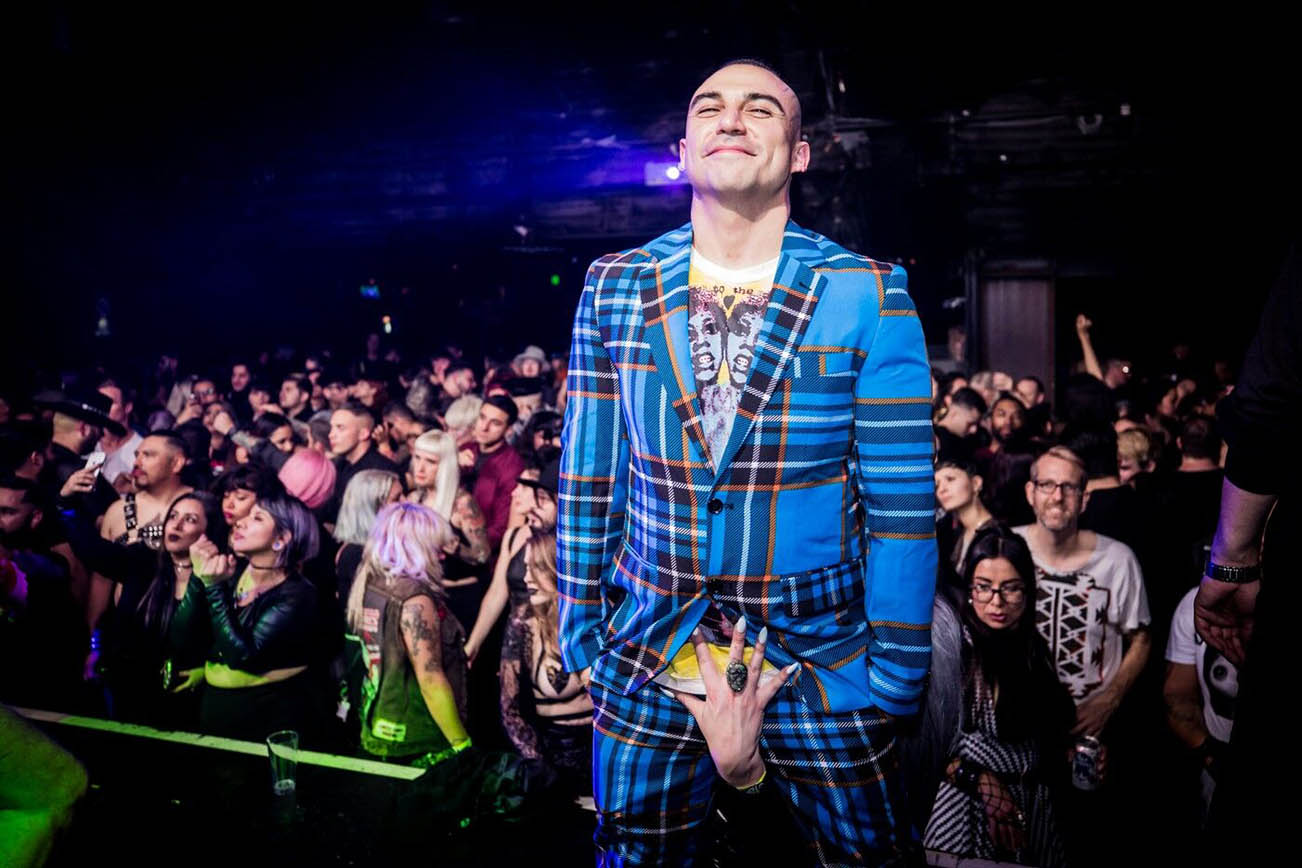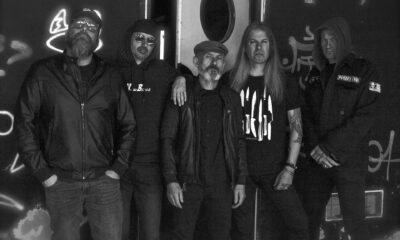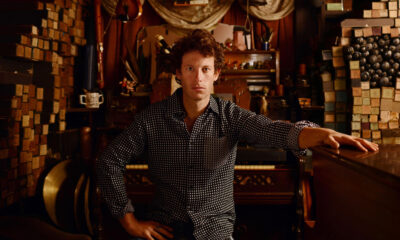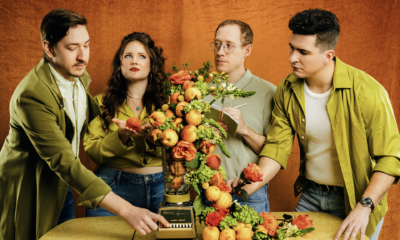Interviews
DANNY FUENTES Discusses CHRISTIAN DEATH Vocalist Rozz Williams, Sexuality, and Upcoming Documentary ‘Spiritual Cramp’
We talked to Lethal Amounts director Danny Fuentes to discuss, among other things, the legacy of Christian Death vocalist Rozz Williams.

We got in touch with art gallery director Danny Fuentes to discuss current projects and those to come. Fuentes is the owner and director of the Los Angeles gallery Lethal Amounts, which specializes in counter cultural art and fashion. Lethal Amounts recently hosted an exhibition dedicated to the late Christian Death vocalist Rozz Williams. Head below for our interview with Fuentes, where we talk about the exhibition, as well as Spiritual Cramp, the upcoming documentary on the life of Rozz Williams.
You recently hosted a Rozz Williams exhibit at your gallery Lethal Amounts, which featured pictures of Rozz captured by the prolific punk photographer Edward Colver. How was this exhibit initially conceptualized and executed?
Danny Fuentes: We have worked with Edward Colver for many years now. We’ve had access to all his negatives and realized there is an incredible amount of images of Christian Death that have not been seen. We selected a handful to show alongside personal items of Rozz’ as well as his own artwork that is highly sought after.
Check out the documentary trailer for Spiritual Cramp: Life and Death of Christian Death.
I’ve read that you grew up in the ‘90s punk scene of East LA, which often harbored homophobic sentiments and forced you to hide your sexuality. What effect did it have to see Rozz Williams be a prolific performer while also being open about his sexuality?
Fuentes: Rozz in many aspects was ahead of his time, he came from an era that wasn’t very open-minded about sexuality. I think Rozz Williams wasn’t flying a gay flag at all, or politicizing his sexual orientation. He was simply being himself with the same confidence and conviction any other man in the room would have about being straight. The gender bending of his persona and the in-your-face delivery made it a form of queer activism, in my opinion. I think that is what was brave about him, he never felt the need to explain himself. He was just being his own person beyond the need of a definition or phrase. I take inspiration in that.
What was it like interacting with the surviving members of Christian Death at the exhibit?
Fuentes: We’ve done many things with the original members of the Christian Death family tree. They are close friend of ours, we are always interested in pointing out the incredible power that band had. They appreciate what we do to keep the legacy alive.
You announced that you have begun work on the documentary Spiritual Cramp, which will take an intimate look at the life of Rozz Williams. What inspired you to start this project?
Fuentes: Rozz has a very interesting life and his struggles are universal despite him playing in a punk/goth band. As musicians CD was never given the credit they should have. Perhaps they were ahead of their time or the nature of the band was too aggressive. Nonetheless, we understand they played a major role in paving the way for mainstream musicians like Marilyn Manson and NIN. Since we have done more than a few things with Christian Death, it just became a natural idea that I want to see come to life. The story of the band Christian Death and the life of the artist Rozz Williams.
Watch live concert footage of Christian Death in 1994.
Do you have any experience with film? If not, how has your experience been with transitioning into film?
Fuentes: No legitimate experience in film other than being a film snob. I also don’t have any experience in being a gallerist, but that hasn’t stopped me from anything. Interviewing people comes easy to me.
The film’s trailer looks promising. What else can we expect to see from Spiritual Cramp?
Fuentes: Rare footage, unseen photos and exclusive interviews from family, friends and musicians inspired by CD/Rozz Williams.
I read the film is currently being crowd funded. What date can we expect to see the film ideally?
Fuentes: It’s a long-term project and I expect it to take over 2 years to film. I would say no less than 2-3 years.
-

 Music5 days ago
Music5 days agoTake That (w/ Olly Murs) Kick Off Four-Night Leeds Stint with Hit-Laden Spectacular [Photos]
-

 Alternative/Rock7 days ago
Alternative/Rock7 days agoThe V13 Fix #010 w/ High on Fire, NOFX, My Dying Bride and more
-

 Alternative/Rock2 weeks ago
Alternative/Rock2 weeks agoA Rejuvenated Dream State are ‘Still Dreaming’ as They Bounce Into Manchester YES [Photos]
-

 Features5 days ago
Features5 days agoTour Diary: Gen & The Degenerates Party Their Way Across America
-

 Culture1 week ago
Culture1 week agoDan Carter & George Miller Chat Foodinati Live, Heavy Metal Charities and Pre-Gig Meals
-

 Music1 week ago
Music1 week agoReclusive Producer Stumbleine Premieres Beat-Driven New Single “Cinderhaze”
-

 Alternative/Rock1 week ago
Alternative/Rock1 week agoThree Lefts and a Right Premiere Their Guitar-Driven Single “Lovulator”
-

 Alternative/Rock1 week ago
Alternative/Rock1 week agoDeath Wishlist Are Fiery and Fierce with Their “I Get Bored” Video Premiere













